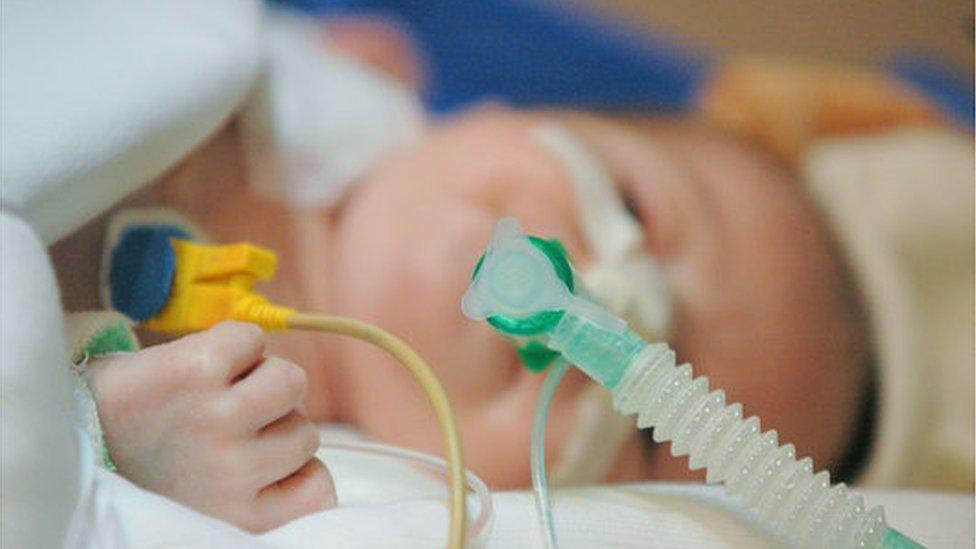Coronavirus and shielding: 'I've only left my home five times this year'
- Published
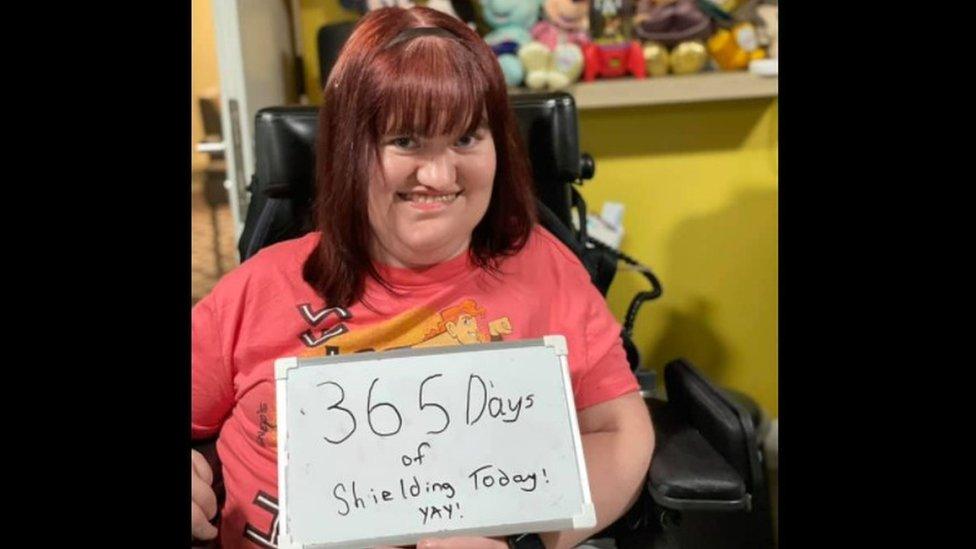
Within the month of September 2019 Michaela Hollywood flew across America eight times, such were the demands of a leadership programme she was on. Since coronavirus, however, she has only been able to leave her home five times.
In early 2020 Michaela was scrolling through the news when she found an article about a "weird virus in China". As someone with health difficulties, the 30-year-old immediately started making changes to her life.
"I tried to stop touching any surfaces outside my home," she says. "If I'd waited until the extremely clinically vulnerable letter had come in, who knows what would have happened."
Michaela, from Northern Ireland, has spinal muscular atrophy (SMA), a genetic and degenerative condition which weakens muscles and impacts movement. She is a full-time wheelchair-user, is unable to sit-up unaided and her breathing muscles are paralysed.
Michaela went about life cautiously but continued with cinema trips and bingo with her mum - until her final night of freedom, although she didn't know that when she went out.
"It was big money night at bingo," she says. "My phone started flashing to say that we had community transmission in Northern Ireland, and I knew that would be it. I decided to shield."
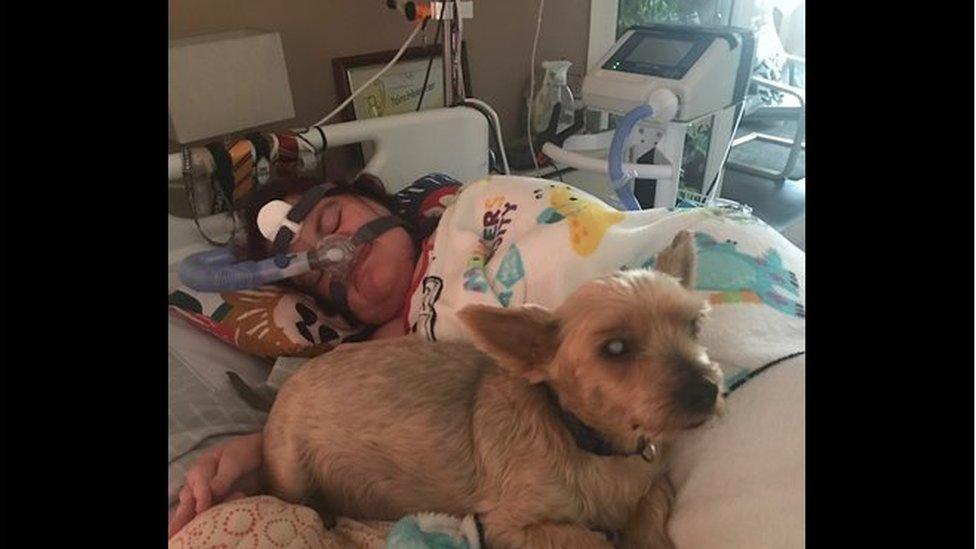
Michaela uses a ventilator when she sleeps to ensure her breathing remains stable
It was 12 March 2020 - one day after the World Health Organization declared Covid-19 a global pandemic.
At this point there was no guidance offered in the UK. Friends who had previously been part of Michaela's medical team suggested she take "every precaution".
She went from jet setting across America for her work in disability rights, to trying to settle into life at home under lockdown just six months later.
She lives with her parents, while her sisters, brother-in-law, nieces and nephews live in the next house along. "I still had family around me, so I know I'm really privileged," she says.
But the initial weeks and months of lockdown were taken up with solving problems.
Michaela uses personal assistants to help with everyday tasks like washing and eating, but that became problematic when protective clothing, known as PPE, ran out because of high demand.
There was one way around it.
"Two of them moved in," she says. "We have a spare room, but it was full of junk. So we had a day where we emptied the room. I'm really thankful to them for making it happen."
While this newly-formed bubble solved one problem there were others.
Mastering the balance between having medication stocked at home and ordering new batches in time, while allowing for delays, was tricky. And food was a headache too. Michaela's condition affects her ability to swallow and so while she can eat solid food, it needs to be soft.
For the first four months, securing online deliveries without food substituted for something she might not be able to eat was near-impossible and she relied on what she had stockpiled pre-lockdown.
"I lived on beans and soup," she says. "Once I was able to get on to the register as a vulnerable person it wasn't too bad."
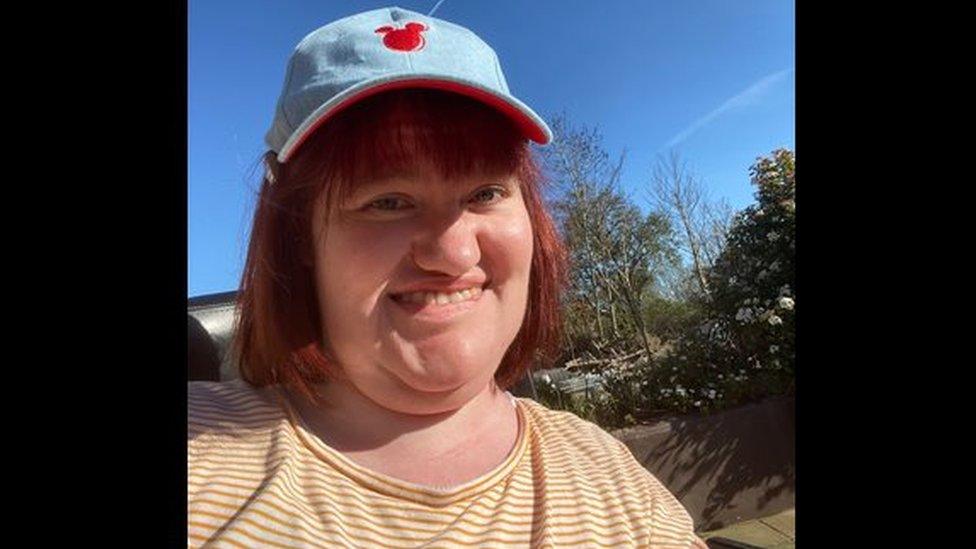
Then there was the mundanity of lockdown everyone has faced for a year too. But for Michaela there was no possibility of a walk outside or meeting a friend, socially distanced.
"I watched Star Wars for the first time, and I am still trying to watch every episode of The Simpsons. It's all those little things that sound nothing but actually keep you busy."
Although stuck inside, technology did open up the world for some disabled people.
"There was a sense of euphoria because all of a sudden there were events we could go to - there were concerts online, access to university," Michaela says.
"I was looking at all these things and thinking how much better this is for our community.
"That's not saying we would choose that every time, we wouldn't, but we would certainly need it sometimes."
It wasn't being confined to the house which Michaela found most frustrating, but other people's behaviour, including those who could but refused to wear masks.
"It's not straightforward to shield when you're also physically disabled," she says. "I have to bring people in from the community into my house every day - I can't stay in my room on my own."
This was one reason why her PAs moved in, so she didn't have to deal with a variety of agency staff.
Michaela also implemented her own rules - she wouldn't step on ground beyond the house boundary until community transmissions stopped.
Come June, that possibility arrived when Northern Ireland recorded no new cases.
"I made the most of that," she says.
'Liquid gold'
Having got a new job to support disabled people with technology, Michaela hit the shops for new work clothes and managed to get a private cinema screening of Tenet, because no one else had booked.
She only had three other trips outdoors, all for medical appointments - X-rays, blood tests and her first Covid vaccination. It still felt like freedom.
"That was a period of grace for me and I still genuinely believe that it should have been two weeks for shielders to get out and have some respite," she says.
Some European countries like Spain did implement a timetable to ensure everyone could enjoy time outside - something Michaela thinks the UK should think about next time.
Non-shielders were banned from going out during certain hours to allow those shielding or the over 70s to go out safely.
During the interview, Michaela's phone rings and she says she has to take it, but wants to keep me on Zoom.
"You have just witnessed the greatest moment of my life," she beams, looking slightly shocked as she ends the call.
"There's a drug for my condition called Risdiplam that has just become available in Northern Ireland - I can only call it liquid gold."
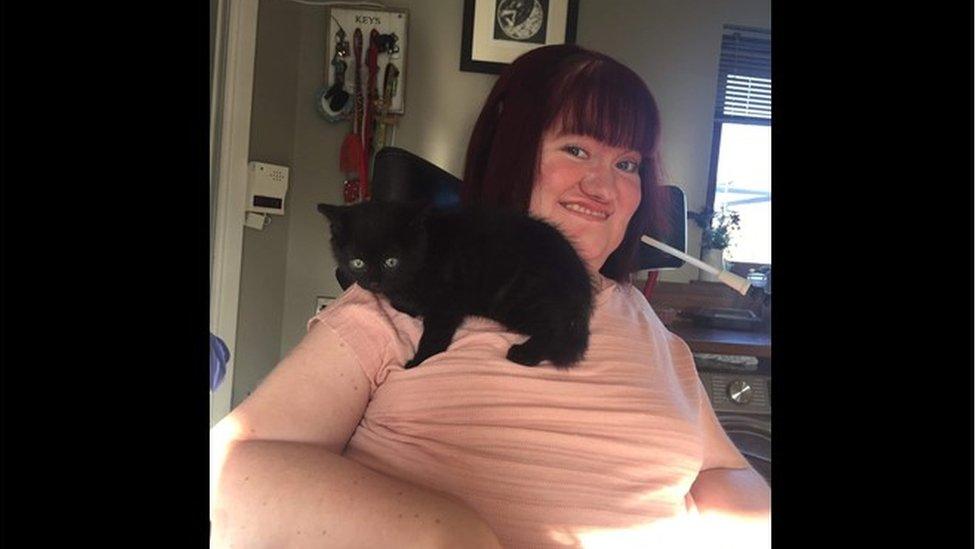
Risdiplam helps the body produce the protein that people with SMA are missing, which causes muscle weakness. It can halt the progression of SMA and may encourage improvements.
"For the first time ever, my speech should hopefully become clearer," she says. "Wow - I might be able to lift my hand up to my mouth again.
"It's turned the worst year of my life into one of the most changing."
With Michaela's first order arriving this week it brings hope that things are getting better.
In England and Wales 1 April signals the end of shielding. In Northern Ireland shielders are advised to continue taking extra precautions until further notice.
"I would need to know that community transmission has all but stopped before things change for me," Michaela says.
But that doesn't stop her dreaming about that day.
"There is an ice cream parlour, not far from here. It's by the seaside and they do the most incredible ice cream."
For more disability news, follow BBC Ouch on Twitter, external and Facebook, external and subscribe to the weekly podcast on BBC Sounds.

- Published13 March 2020

- Published20 June 2020
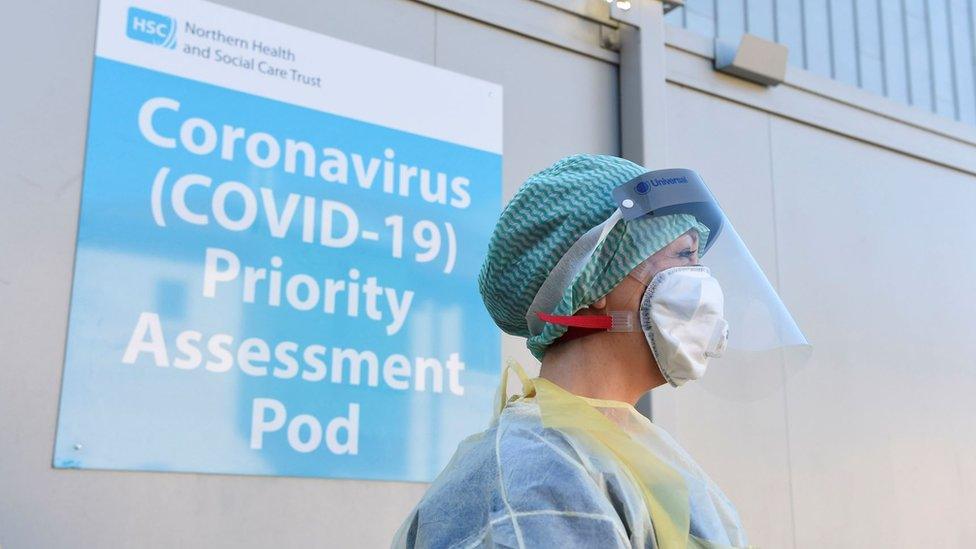
- Published17 March 2021
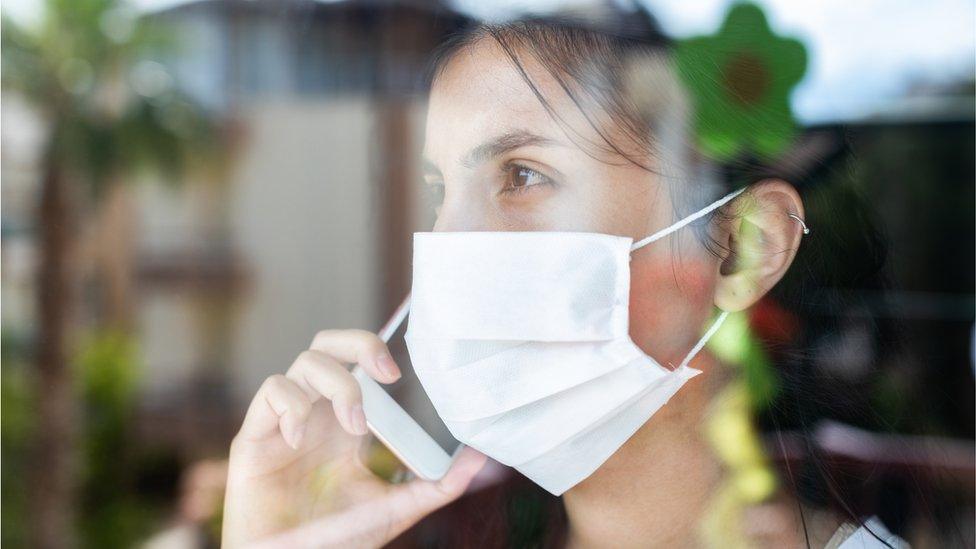
- Published8 March 2021
